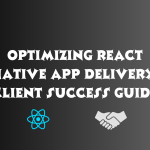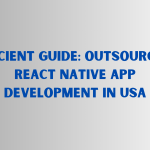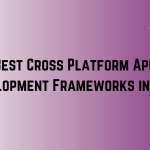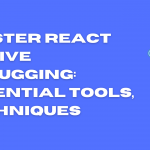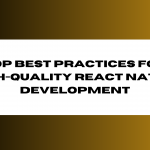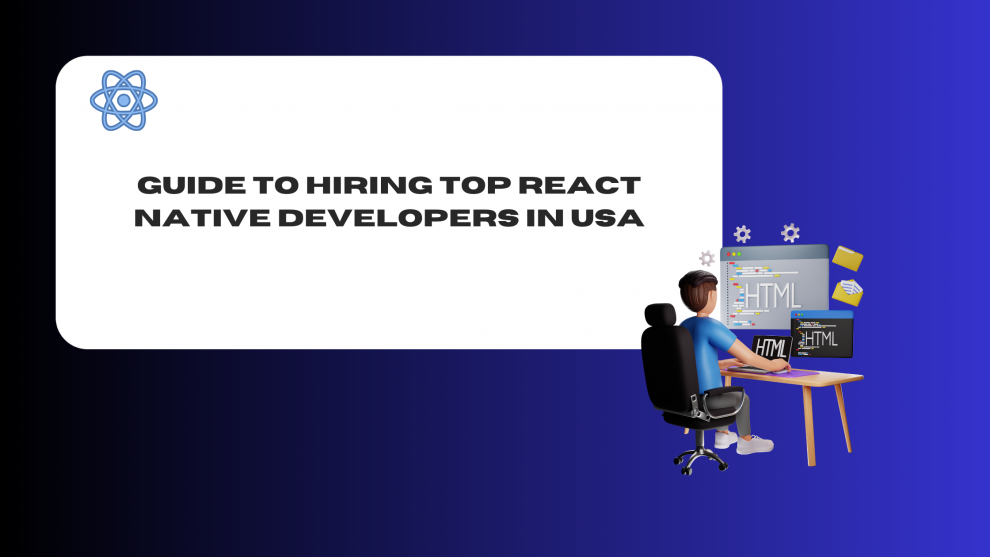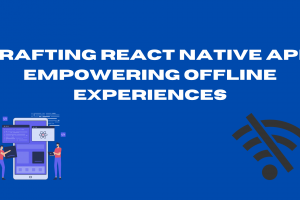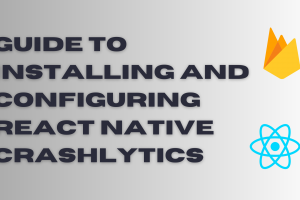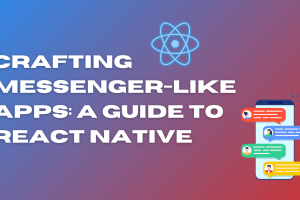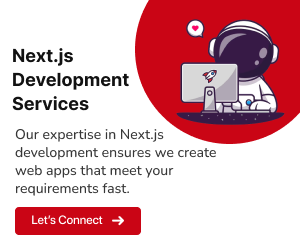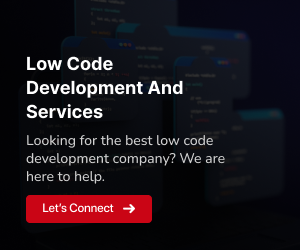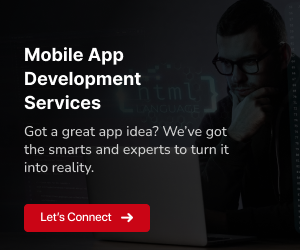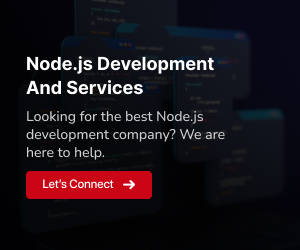In the ever-evolving landscape of mobile app development, React Native has emerged as a dominant force. This revolutionary framework allows developers to create native iOS and Android apps using a single codebase, significantly reducing development time and cost. As a result, the demand for skilled React Native developers has skyrocketed, especially in the dynamic and competitive tech scene of the United States.
For companies seeking to develop cutting-edge mobile apps and stay ahead of the curve, acquiring the services of top-notch React Native developers is no longer a luxury, but a necessity. These skilled individuals possess the expertise to navigate the complexities of the framework, translate your vision into reality, and ensure your app delivers a seamless and engaging user experience.
Whether you’re a seasoned tech giant or an ambitious startup, investing in the right React Native talent can make all the difference in achieving your mobile app goals. This guide will equip you with the knowledge and strategies needed to identify, attract, and hire the best React Native developers in the USA, bolstering your team and paving the way for mobile app success.
Identifying Your Needs: A Crucial First Step
Before embarking on your search for the perfect React Native developer, it’s critical to take a step back and carefully define your project’s specific needs. This self-assessment will serve as a roadmap, guiding you towards the ideal candidate who possesses the skills and experience necessary to propel your project to success.
Defining the Scope and Complexity
App Type:
Is it a simple single-screen app or a complex multi-screen application with intricate functionalities?Target Platforms:
Will the app be available on iOS, Android, or both?Features and Functionality:
What features and functionalities are essential for your app?Integration Requirements:
Does the app need to integrate with any third-party APIs or services?
Determining the Required Skills and Experience
Technical Skills:
Expertise in React, JavaScript (ES6+), React Native core concepts, and native iOS and Android development knowledge (preferred).Experience Level:
Entry-level, mid-level, or senior developer based on project complexity.Domain Expertise:
Prior experience in your industry or with similar apps can be beneficial.
Specifying Employment Type and Budget
Employment Type:
Full-time, freelance, or contract-based depending on project duration and budget.Budget:
Define a realistic budget that aligns with the required skills and experience level.
By meticulously analyzing your project needs, you can create a clear profile of your ideal React Native developer. This will not only guide your search efforts but also enable you to attract qualified candidates who are genuinely interested in and capable of contributing to your project’s success.
Search Strategies: Casting Your Net Wide and Deep
With a clear understanding of your project requirements and ideal candidate profile, it’s time to embark on your search for the perfect React Native developer. This section explores a diverse range of strategies that will help you cast your net wide and attract top talent in the USA:
Leveraging Online Platforms
Freelance Marketplaces:
Platforms like Upwork, Fiverr, Guru, Toptal, and Hired offer access to a vast pool of freelance React Native developers across various skill levels and experience ranges.Specialized Platforms:
Arc.dev, Turing.com, and X-Team cater specifically to tech professionals, offering a curated selection of highly qualified React Native developers.Job Boards:
LinkedIn, Indeed, Glassdoor, and AngelList are excellent resources for posting job listings and attracting qualified candidates.
Building Your Professional Network
Industry Events and Conferences:
Attending industry events and conferences is a fantastic way to connect with potential candidates, network with industry professionals, and gain valuable insights into the current tech landscape.Professional Networking:
Leverage your existing network of colleagues, friends, and former classmates who may be able to recommend qualified candidates.Recruitment Agencies:
Partnering with specialized recruitment agencies can be beneficial, as they possess the expertise and resources to identify and attract top React Native talent.
Exploring Additional Avenues
Social Media:
Platforms like Twitter, Facebook, and LinkedIn groups dedicated to React Native development can be valuable tools for connecting with potential candidates and staying informed about the latest trends.University Hiring Programs:
Collaborate with universities and colleges that offer computer science or software engineering programs to recruit promising young talent.Open Source Communities:
Participating in open source projects and contributing to online forums can help you identify talented developers and build relationships within the community.
By strategically utilizing a combination of these search strategies, you can significantly increase your chances of attracting and recruiting the best React Native developers in the USA.
Screening and Evaluation: Separating the Wheat from the Chaff
Once you have received applications from potential candidates, it’s time for the crucial screening and evaluation process. This stage is essential for identifying the candidates who possess the necessary skills, experience, and cultural fit to be successful in your project.
1. Portfolio and Code Samples:
- Reviewing candidates’ portfolios and code samples allows you to assess their technical skills, problem-solving abilities, and coding style.
- Look for well-structured code, efficient use of React Native principles, and adherence to best practices.
- Pay attention to the complexity and diversity of projects in their portfolio, as this can offer insights into their experience range.
2. Phone/Video Interviews:
- Conducting initial phone or video interviews is a valuable step in evaluating communication skills, soft skills, and cultural fit.
- Ask open-ended questions to gauge their understanding of React Native concepts, ability to articulate their thought process, and enthusiasm for the project.
- Assess their communication style, teamwork potential, and ability to adapt to new technologies.
3. Technical Test Projects:
- Assigning short technical test projects allows you to directly evaluate the candidate’s technical abilities and problem-solving skills in a practical setting.
- Design the test project to mirror the specific requirements and challenges of your actual project.
- Evaluate the code quality, efficiency, and adherence to the project specifications.
4. Reference Checks:
- Contacting references provides valuable insights into the candidate’s work ethic, performance, and overall character.
- Ask specific questions about their technical skills, collaboration abilities, and ability to meet deadlines.
- Look for consistent and positive feedback from previous employers and colleagues.
5. Self-Assessment:
- Encourage candidates to complete a self-assessment questionnaire to gauge their confidence in their skills and experience.
- This can reveal their strengths and weaknesses, learning goals, and overall motivation.
- Use this information to tailor your interview questions and assess if their self-perception aligns with your expectations.
By implementing a multi-pronged screening and evaluation process, you can effectively identify the React Native developer who possesses the technical expertise, cultural fit, and dedication necessary to contribute to your project’s success.
Interviewing Tips: Unveiling the Hidden Gems
Once you’ve shortlisted a pool of promising candidates, it’s time for the final hurdle – the interview. This stage presents a unique opportunity to delve deeper into their technical skills, problem-solving abilities, and communication style, ultimately allowing you to make an informed decision about who will be the best fit for your team and project.
Here are some essential tips to help you conduct successful React Native developer interviews:
1. Prepare Clear Questions:
Technical Skills:
Design a set of clear and concise technical questions that assess their understanding of React Native core concepts, best practices, and ability to solve common problems.Problem-Solving:
Present real-world scenarios or hypothetical problems related to your project to evaluate their analytical skills and creative problem-solving abilities.Soft Skills:
Integrate questions that assess their communication skills, teamwork abilities, adaptability, and cultural fit.
2. Assess React Native Expertise:
- Explore their knowledge of React Native components, lifecycle methods, state management libraries, and animation techniques.
- Discuss their experience with native iOS and Android development, especially if your project requires platform-specific functionalities.
- Ask them about their approach to writing clean, maintainable, and efficient code.
3. Evaluate Problem-Solving Skills:
- Present them with a specific problem or bug related to React Native and observe their thought process and debugging strategies.
- Encourage them to explain their solutions clearly and concisely, including the rationale behind their approach.
- Assess their ability to think critically, analyze problems from different angles, and come up with creative solutions.
4. Gauge Communication and Collaboration:
- Pay attention to their communication style, clarity, and ability to answer questions confidently and concisely.
- Observe their body language and non-verbal cues to assess their overall professionalism and enthusiasm.
- Ask them about their experience working in teams and collaborating with other developers.
5. Assess Cultural Fit:
- Discuss your project goals, company culture, and expectations to ensure the candidate is a good fit for your team and environment.
- Encourage them to ask questions about your company, work environment, and project expectations to gauge their level of interest and engagement.
- Look for signs of cultural alignment, such as shared values, work ethic, and communication styles.
Making the Offer: Closing the Deal and Securing Top Talent
After a rigorous search and interview process, you’ve finally identified the ideal React Native developer who possesses the perfect blend of skills, experience, and cultural fit to contribute to your project’s success. Now comes the crucial step – making the offer and securing their commitment.
Negotiating Compensation and Benefits:
- Conduct research to understand the current market rate for React Native developers with similar skills and experience levels.
- Consider factors such as location, cost of living, and company size when determining the base salary range.
- Offer a competitive and comprehensive benefits package that includes health insurance, paid time off, retirement plans, and other relevant benefits.
- Be prepared to negotiate salary and benefits based on the candidate’s experience, qualifications, and your budget.
Crafting a Clear Contract:
- Outline the project scope, deliverables, timeline, and responsibilities in a clear and concise contract.
- Specify the compensation details, payment schedule, and benefits included in the offer.
- Address intellectual property ownership, confidentiality agreements, and termination clauses.
- Allow the candidate to review the contract thoroughly and ask questions before signing.
Establishing Communication:
- Set up a clear communication plan with regular meetings, progress updates, and feedback loops.
- Define preferred communication channels and tools to ensure smooth collaboration.
- Foster an open and transparent environment where the developer feels comfortable asking questions and expressing concerns.
Onboarding and Integration:
- Develop a comprehensive onboarding program to familiarize the new developer with your company culture, development processes, and project specifics.
- Provide adequate training on your specific codebase, tools, and technologies.
- Assign them a mentor or buddy within the team to provide ongoing support and guidance.
- Encourage them to actively participate in team meetings and discussions to foster integration and collaboration.
By making a competitive and well-structured offer, clearly outlining expectations, and fostering a welcoming and supportive environment, you can effectively secure the commitment of the top React Native developer and set them on a path to success within your team.
Onboarding and Integration: Setting the Stage for Success
Once you’ve secured the commitment of your ideal React Native developer, the next crucial step is onboarding them into your team and integrating them seamlessly into your workflow. This phase lays the foundation for a productive and successful working relationship, maximizing the developer’s potential and ensuring they feel valued and supported.
1. Comprehensive Onboarding Program:
- Develop a structured onboarding program tailored specifically for new React Native developers.
- Introduce them to your company culture, mission, values, and work environment.
- Provide thorough training on your codebase, including architecture, dependencies, and development tools.
- Offer sessions on your internal processes, methodologies, and communication channels.
- Familiarize them with project documentation, requirements, and key stakeholders.
2. Targeted Training and Development:
- Assess the developer’s skill gaps and provide targeted training to fill those gaps.
- Offer opportunities to learn and explore new technologies relevant to the project.
- Encourage participation in online courses, workshops, and conferences to enhance their knowledge and skills.
- Foster a culture of continuous learning and development within the team.
3. Mentorship and Support:
- Assign a dedicated mentor or buddy within the team to provide ongoing guidance and support.
- Encourage them to ask questions, seek help, and express concerns without hesitation.
- Create a safe space where they feel comfortable sharing their challenges and learning experiences.
- Offer regular feedback and performance reviews to help them track their progress and identify areas for improvement.
4. Team Integration and Collaboration:
- Encourage active participation in team meetings, discussions, and brainstorming sessions.
- Foster a collaborative environment where developers share knowledge, ideas, and best practices.
- Assign them tasks and projects that allow for collaboration and interaction with other team members.
- Promote social events and outings to build rapport and strengthen relationships within the team.
5. Performance Management and Feedback:
- Implement a clear performance management system to track progress and identify areas for development.
- Provide regular feedback on their work, focusing on both strengths and areas for improvement.
- Encourage open and honest communication to address any challenges or concerns they may have.
- Utilize feedback to tailor ongoing training and support to their specific needs and goals.
By taking the time to thoughtfully onboard and integrate your new React Native developer, you can create a positive and productive work environment that fosters growth, collaboration, and ultimately, project success.
Conclusion: Building a Strong Future with Top React Native Talent
In the fast-paced world of mobile app development, securing top React Native talent is crucial. This guide offers strategies for identifying and attracting the best developers, underscoring the ongoing importance of building a strong employer brand and fostering a culture of innovation. GeekyAnts, a leader in React Native, stands out as a valuable partner, showcasing excellence in crafting high-quality mobile apps. By investing in the right people and maintaining an innovative environment, businesses can build a formidable team, ensuring sustained success and market prominence in the dynamic field of mobile app development in the United States.
For more information, Contact us here.






